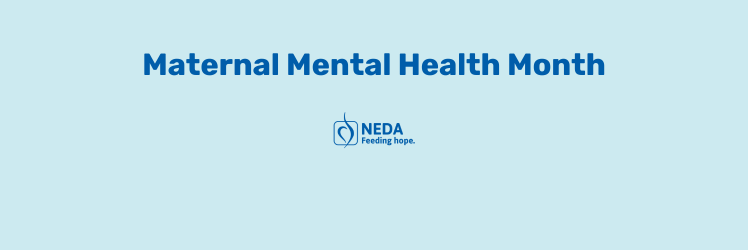Eating Disorders in Pregnancy
Pregnancy is a vulnerable period for women with a history of an eating disorder. Pregnant women with an eating disorder may imply feeling increasingly out of control with one’s body and one’s life. Some pregnant women with a history of an eating disorder may describe the process as “chaotic, unpredictable, shameful, and a sense of a loss of control.”
Eating disorders are among the deadliest of mental illnesses. For those with a history of having an eating disorder, there is a high risk of relapse during the prenatal and postpartum periods, which potentially could lead to harmful behaviors such as food restriction, overexercising, and/or binging/purging.
During pregnancy, a woman’s body is changing in a way that is not in one’s control. A woman who has a history of body image struggles and eating disorder behaviors, even if they have achieved a healthy weight, has a much greater chance of falling back into old negative habits.
There is a strong focus on healthy nutrition and gaining the appropriate amount of weight when attending each prenatal appointment. Unfortunately, these appointments can serve as triggers for women who have challenging relationships with food, weight, and their bodies.
Full Disclosure
Many patients may be reluctant to share their history of eating disorders, but it’s important to be honest and discuss any issues, since medical complications could occur without the medical team having more information. Many pregnant women with active eating disorders may not tell their maternity care providers, which may be due to fear of judgment or blame.
Symptoms can also be difficult to spot because women may appear healthy and the weight gain is in alignment with the normal pregnancy trend. As a result, eating disorders may often go undetected and untreated during pregnancy.
Treatment
Wanting a pregnancy can be a very strong motivation to change disordered eating. Typically, treatment starts with education about mental and physical wellness. Developing more insight about the situations, types of food, and times that make eating harder and easier is a top priority for women who are just starting to recognize their own disordered eating disorder as they become pregnant.
Common pregnancy issues such as fluctuating hormones, morning sickness, nutrition, hydration, or adjusting medications can become more complicated with an eating disorder. Many women struggling with an eating disorder may also struggle with anxiety and depression, which also may further complicate prenatal, perinatal, or postpartum treatment.
A dietitian with expertise in eating disorders can be very helpful by providing a meal plan as a guide. A personalized approach tailored to the specific situation is required to care for and support women who struggle with particular aspects of their eating disorder during pregnancy.
Complications
Anorexia is associated with premature birth, stillbirth, and neonatal death, and bulimia is linked to the need for resuscitation after birth and poor health. Women with a very low body weight are at risk of miscarriage and developing heart problems during pregnancy, while those with binge-eating disorders are more likely to have high blood pressure, larger babies, and gestational diabetes.
New moms with a history of bulimia or binge-eating disorder are also more likely to develop postpartum depression, making their struggles with food that much harder to manage. The struggles with body image and the risk of eating disorder behaviors may start during the prenatal period, but also last throughout the postpartum period and beyond.
Conclusion
It is important that women be open and honest with their medical providers about any history of eating disorders or distorted eating behaviors. The more the medical team knows about the health of their patient, the more clarity there is, and a better plan of care can be developed in order to keep the mom and baby healthy.
For more information on eating disorders and pregnancy please visit https://www.nationaleatingdisorders.org/pregnancy-and-eating-disorders.
Kirsten Book, FNP-BC, PMHNP-BC, is a dual board-certified family nurse practitioner and psychiatric nurse practitioner who specializes in treating adolescents and adults struggling with eating disorders, substance use, and co-occurring disorders. Not only does Kirsten have the education and clinical experience, but she also is in recovery from an eating disorder. She uses her own personal experience to draw empathy, compassion, and humility when working with her patients. Kirsten has the unique opportunity to help improve an individual’s mental health, by not only utilizing medications and psychotherapy, but also by instilling hope, which she believes is just as powerful and effective as what any medication can do. Kirsten has an outpatient private practice in Chicago, Illinois. She also is licensed to practice in Arizona and Washington. Kirsten is also the Medical Liaison for IADEP (International Association for Eating Disorder Professionals), and she speaks at local schools to help educate the adolescents and staff about eating disorder prevention and treatment.





